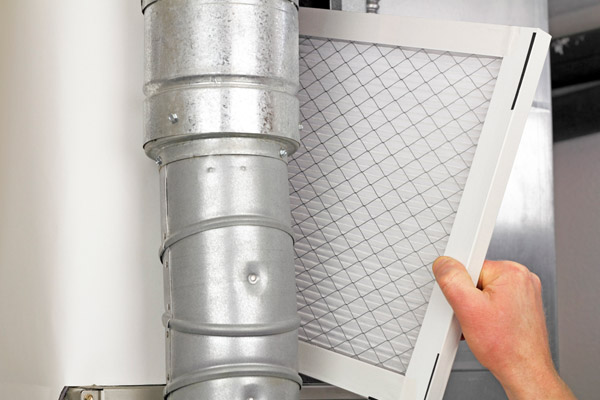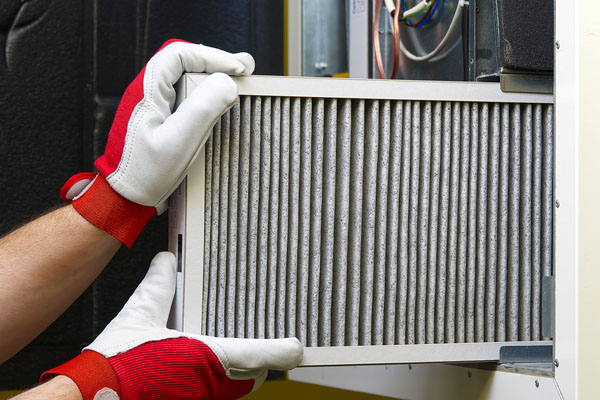Contents
- 1 What Is A MERV Rating?
- 1.1 How MERV Ratings Work
- 1.2 How Is MERV Rating Determined?
- 1.3 MERV & Your Indoor Air Quality
- 1.4 Your Energy Use & MERV Ratings
- 1.5 How Your HVAC Air Filter Impacts The Condition of Your HVAC System
- 1.6 Should I Buy Filters With High MERV Ratings?
- 1.7 What MERV Rating Should My Filter Have?
- 1.8 Conclusion
- 2 Call Wilcox Energy For All Of Your HVAC Requirements

Every home has indoor air pollutants. These unwanted airborne particles are too small for the naked eye to see. However, their adverse impacts can definitely be felt. If you are concerned about your home’s indoor air quality, make sure that you regularly replace your air filters. Some homeowners can follow the manufacturer’s recommended schedule, but it is still best to check every month. Some homes need to replace their air filters more frequently than the manufacturer’s recommendations. They should also get filters that match their system and household needs. This means checking the MERV rating of the filter to determine which is the most compatible. This article discusses the MERV rating, a crucial factor in selecting and buying HVAC filters.
What Is A MERV Rating?
Air filter shopping can be confusing if you haven’t done it before. All products claim to be the best there is. Do your homework, and you will quickly determine which ones do not deliver. Familiarize yourself with the specifications and understand what the numbers mean. You might eventually come across the term “MERV” or the Minimum Efficiency Reporting Value. It is an essential measure of the air filter’s ability to catch unwanted air particles. Filters with higher MERV ratings mean they have better filtration capacity.
How MERV Ratings Work

The MERV rating system ranges from 1 to 20. People generally go higher, but some applications need a mid-range MERV rating. For instance, demanding circumstances like hospitals, cleanrooms, and nuclear power plants require air filters with a MERV 16 to 20 rating. Most homes typically use filters rated from MERV 5 to 13. Filters under MERV 5 ratings are insufficient in maintaining good indoor air quality. On the other hand, filters with MERV 13 might significantly affect the performance of the residential HVAC system.
How Is MERV Rating Determined?
Filters go through extensive tests to find out their MERV rating. The process includes many particles in three various size ranges, including:
- E1 is 0.3 to 1.0 microns
- E2 is 1.0 to 3.0 microns
- E3 is 3.0 to 10 microns
The human eye cannot see these because we cannot see anything smaller than 40 microns. To get a comparison, human hair is around 50 microns in diameter. The good news is that sensitive laboratory equipment can find them all. The tiny particles are sprayed through the filters and then counted. The worst test score indicates the MERV. After all, it is meant as the indicator of the “minimum efficiency” of the product. A filter must catch 95% or more of the particles to qualify as a MERV 16.
MERV & Your Indoor Air Quality
Indoor air quality massively affects your family’s health and comfort. Consider converting to a higher MERV-rated filter if there are frequent allergic reactions. This can remove the air pollutants, resulting in the reduction of common allergy symptoms. People will experience fewer headaches, runny noses, fatigue, rashes, eye irritation, sore throat, and persistent sneezing. Upgrading the filter also protects your home from damage caused by bacteria and dust. There will be fewer bouts of illness, and contagions will be prevented. A person with a weak immune system also highly benefits from a high-MERV filter.
Your Energy Use & MERV Ratings
Air filters require smaller openings to capture more particles in the air. The openings shrink in size, making it more difficult for even air to pass through. The HVAC system ends up using more energy to operate as it should. This is the reason it isn’t recommended to have a MERV 20 filter in homes not built to handle this filtration level. Energy costs will spike, and the HVAC system might prematurely break down without adjustments. Residential air filters are typically rated at MERV 8 to 13. These are sufficient in maintaining good air quality without drastic spikes in your energy bills. Consult an HVAC professional if you are unsure which HVAC filter will work best for your home.
How Your HVAC Air Filter Impacts The Condition of Your HVAC System

All forced-air HVAC systems come with a recommended air filter MERV rating. Homeowners should go with the recommended values to avoid unwanted complications. Filters with low scores might cost less, but they can eventually result in expensive system problems. These filters are not powerful enough to capture pollutants. The ductwork will have an accumulation of dust and bacteria. System efficiency will significantly drop while maintenance prices will increase. However, if you go higher than the recommended rating, there will be decreased airflow, shortened system lifespan, and hastened wear.
Should I Buy Filters With High MERV Ratings?
People often choose higher ratings for hotel designations, product reviews, and other metrics. This typically results in better experiences, but it doesn’t mean it’s universally the truth. Higher doesn’t translate to better at all times when it comes to MERV ratings. MERV filters that are highly rated might block bacteria, pollen, and pet hair better. However, they also prevent air from flowing at ideal speeds throughout the system. Poor airflow can cause reduced comfort while increasing energy use and bills. Compatibility is essential in ensuring that the air filters match the system.
What MERV Rating Should My Filter Have?
Each HVAC system is unique, making it challenging to give exact recommendations. Check the owner’s manual about this matter. Filters rated between MERV 8 and 13 typically do well in most homes. These filters can remove most unwanted particles without causing a strain on the system. When everything works well together, you receive better results down the road. If you live in a home with few occupants and no pets, a filter rated at MERV 8 should be enough. A MERV 11 filter is ideal for a home with more people and some pets. If someone in your home has a weak immune system, getting a MERV 13 filter might be necessary to ensure their health and well-being.
Conclusion
The MERV rating is an important factor when selecting air filters. It measures a filter’s worst-case performance when sprayed with microscopic particles. Filters with low scores point to inadequate air cleaning. However, high-rated filters aren’t necessarily the better option since they can have a negative impact on incompatible systems. Most homes work best with filters rated between MERV 8 and 13. The best rating still depends on the unique situation in each home.
Call Wilcox Energy For All Of Your HVAC Requirements
 Wilcox Energy offers high-quality heating and cooling services on the southern Connecticut shoreline. Rest assured, we have the best professionally certified technicians for all your excellent HVAC service needs, such as maintenance, installations, repairs, and replacements. All our friendly techs have the right tools, knowledge, and experience to service your HVAC system correctly.
Wilcox Energy offers high-quality heating and cooling services on the southern Connecticut shoreline. Rest assured, we have the best professionally certified technicians for all your excellent HVAC service needs, such as maintenance, installations, repairs, and replacements. All our friendly techs have the right tools, knowledge, and experience to service your HVAC system correctly.
Our company guarantees to have highly competitive HVAC service prices in the locality. Our tune-up services can enhance your indoor air quality, comfort, and energy efficiency while reducing your energy bills. We can also recommend the best solutions for your HVAC repair or replacement needs that are within your budget. We back all of our work with a guarantee. Book a service appointment and call Wilcox Energy today. We offer free, in-home estimates.
For more information about our HVAC services, be sure to contact Wilcox Energy. You can click here to contact us, or you can call us at (860) 399-6218 to find out more. We offer a full line of heating and cooling repairs, maintenance services, and installations.
